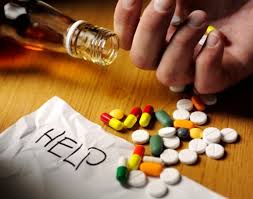Substance Abuse Problems: How to Help Someone with Drug Addiction

The question often asked about substance abuse problems : “How to help someone with drug addiction” is a traumatic self reflection for many people, especially when the addition issue is with a family member or loved one.
Narcotics are becoming increasingly common around the world and previously safe countries like Australia are now finding themselves combating an incline in drug abuse. The dealers are one issue – but the real damage is experienced by those that find themselves addicted to the substances. Heroin and cocaine both contain addictive compounds, but even those that are considered softer, like cannabis, can boast their own levels of dependency.
Just a single dose of Class A drugs can result in a fatality if the substance has an adverse reaction within the body – so those that take these narcotics are frequently exposed to much higher risks. This is why it’s such a priority for family members and friends to help their loved ones to overcome their addictions as quickly and safely as possible, or else face the chance of having to come to terms with a potentially fatal situation.
How to help someone with a drug addiction, before seeking medical help
There are right ways and wrong ways to go about helping a victim of drug addiction and making sure that the correct course of action is pursued can make a lot of difference. The first thing that anyone should do is to gauge how the addict might react to being faced with the prospect of having to accept that they have an issue.
Many people go into denial and others simply see their addictions as controllable, so they can be reluctant to face facts when they are presented to them. At this stage, it’s important to demonstrate that the victim is supported in a way that doesn’t make them feel pressured. When people feel obliged to react they usually will, and unfortunately narcotics can play games with a person’s thought process.
In the best case scenario, they might be open to a discussion. In the worst case, the person trying to help may find themselves faced with a barrage of abuse. Narcotics can take all sorts of toll on a victim’s ability to think clearly and this is why it might be a good idea to approach the subject with support, or with the assistance of a medical expert.
Many rehabilitation centres offer services that can provide support agents to help with these events, but as you might imagine – this can add even more pressure. The best thing to do is to talk openly and honestly about the addiction to the person that is suffering. Ahead of time, print evidence from online and other sources that you can use to compare the symptoms of diagnosed addicts with those demonstrated by the sufferer.
Faced with the prospect of arguing against factual information it won’t be easy to disagree and many people might find themselves more willing to consider further help
